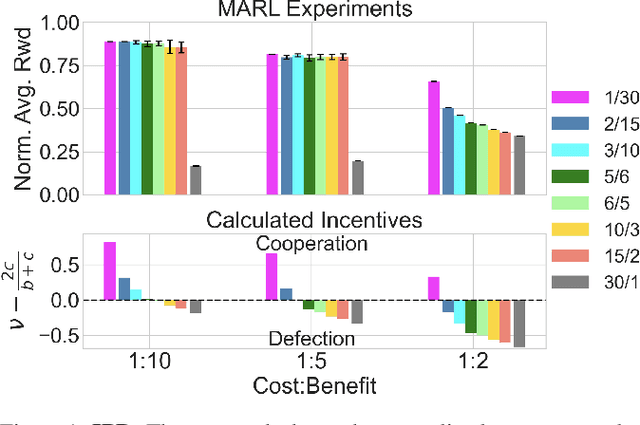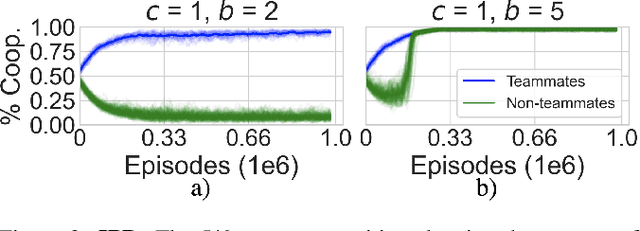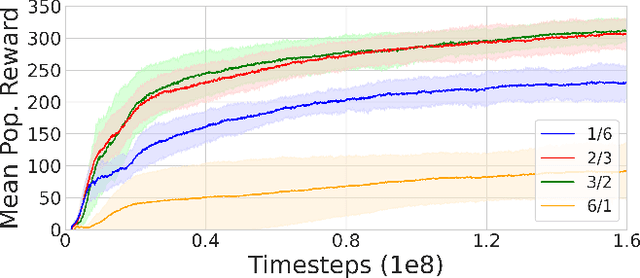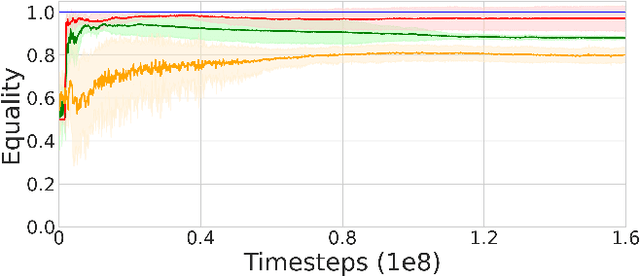Exploring the Benefits of Teams in Multiagent Learning
Paper and Code
May 04, 2022



For problems requiring cooperation, many multiagent systems implement solutions among either individual agents or across an entire population towards a common goal. Multiagent teams are primarily studied when in conflict; however, organizational psychology (OP) highlights the benefits of teams among human populations for learning how to coordinate and cooperate. In this paper, we propose a new model of multiagent teams for reinforcement learning (RL) agents inspired by OP and early work on teams in artificial intelligence. We validate our model using complex social dilemmas that are popular in recent multiagent RL and find that agents divided into teams develop cooperative pro-social policies despite incentives to not cooperate. Furthermore, agents are better able to coordinate and learn emergent roles within their teams and achieve higher rewards compared to when the interests of all agents are aligned.
 Add to Chrome
Add to Chrome Add to Firefox
Add to Firefox Add to Edge
Add to Edge